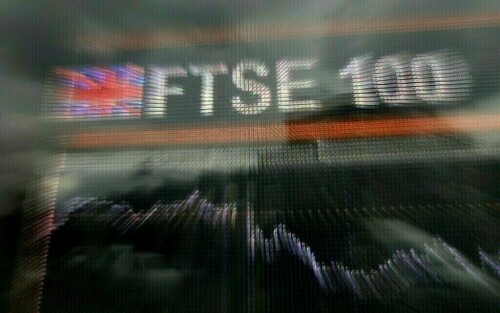London Stock Exchange Performance Mixed Amid Global Economic Signals
The UK’s primary stock index showed little movement on Thursday as investors considered a variety of corporate financial reports, a recent minerals agreement between the United States and Ukraine, and optimism surrounding potential trade discussions between the U.S. and China.
As of 0955 GMT, the FTSE 100 edged up by 0.03%. Meanwhile, the midcap index saw a rise of 0.6%, aiming for its seventh consecutive session of gains.
Top Performers and Declines
Rolls-Royce experienced a gain of 2.7%, positioning it among the leading performers on the blue-chip index. The engineering firm anticipates managing the effects of international tariffs, keeping it aligned with its 2025 profit objectives.
The aerospace and defence sector saw an increase of 1.4%, driven by the encouraging results from Rolls-Royce.
Conversely, energy sector stocks were among the primary decliners on both the FTSE 100 and midcap indexes. This downturn corresponded with a dip in oil prices for the second day, following data that pointed to a U.S. economic contraction. The energy index decreased by 1.6%.
Lloyds Banking Group witnessed a decrease of 2.7% after announcing a nearly 7% decline in profit for the first quarter, impacted by increased expenses and impairment charges.
Previous Trends
The FTSE 100 is currently experiencing its most extended streak of gains in the last eight years.
Global Market Influences
In the U.S., Wall Street futures demonstrated an upward trend on Thursday as shares of major tech firms like Microsoft and Meta Platforms rose following solid quarterly reports, suggesting a robust outlook for the technology sector.
The U.S. and Ukraine formalized an agreement on Wednesday, granting the U.S. preferred access to new minerals deals within Ukraine and supporting investment in the nation’s rebuilding efforts.
In other news, a social media source connected to Chinese state media reported on Tuesday that the U.S. has engaged China to discuss Trump’s 145% tariffs.
Domestic Economic Factors
British factory exports experienced a notable contraction in April, marking the sharpest decline in approximately five years. Concurrently, cost pressures intensified, as indicated by a survey reflecting the repercussions of Trump’s trade policies and a UK tax increase for employers.
Among other notable earnings-related movements, Informa saw a rise of 3% as the events and academic publishing company restated its 2025 projections.



Comments (0)
No comments yet. Be the first to comment!
Leave a Comment